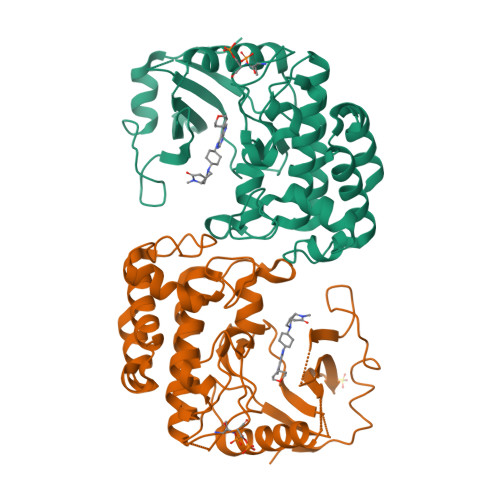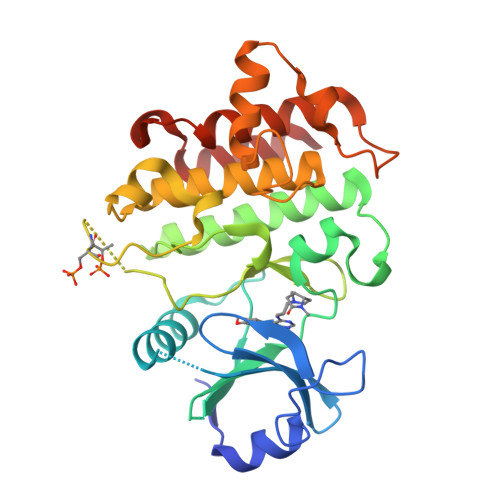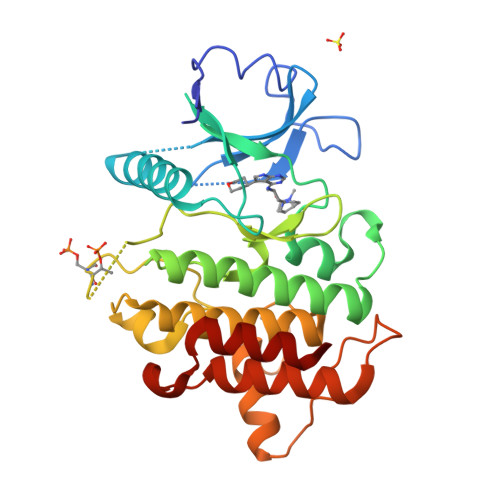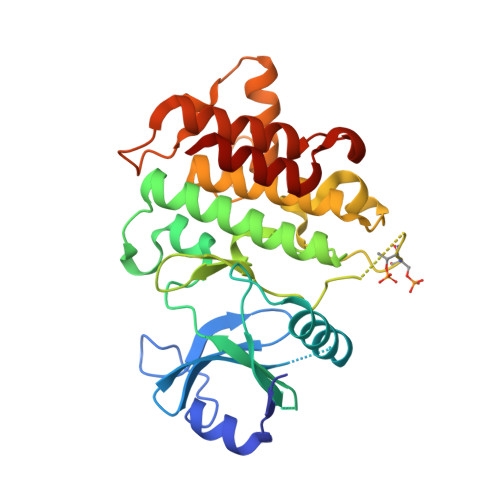Discovery and Optimization of Pyrrolopyrimidine Inhibitors of Interleukin-1 Receptor Associated Kinase 4 (IRAK4) for the Treatment of Mutant MYD88L265P Diffuse Large B-Cell Lymphoma.
Scott, J.S., Degorce, S.L., Anjum, R., Culshaw, J., Davies, R.D.M., Davies, N.L., Dillman, K.S., Dowling, J.E., Drew, L., Ferguson, A.D., Groombridge, S.D., Halsall, C.T., Hudson, J.A., Lamont, S., Lindsay, N.A., Marden, S.K., Mayo, M.F., Pease, J.E., Perkins, D.R., Pink, J.H., Robb, G.R., Rosen, A., Shen, M., McWhirter, C., Wu, D.(2017) J Med Chem 60: 10071-10091
- PubMed: 29172502
- DOI: https://doi.org/10.1021/acs.jmedchem.7b01290
- Primary Citation of Related Structures:
5K72, 5K75, 5K76, 5K7G, 5K7I - PubMed Abstract:
Herein we report the optimization of a series of pyrrolopyrimidine inhibitors of interleukin-1 receptor associated kinase 4 (IRAK4) using X-ray crystal structures and structure based design to identify and optimize our scaffold. Compound 28 demonstrated a favorable physicochemical and kinase selectivity profile and was identified as a promising in vivo tool with which to explore the role of IRAK4 inhibition in the treatment of mutant MYD88 L265P diffuse large B-cell lymphoma (DLBCL). Compound 28 was shown to be capable of demonstrating inhibition of NF-κB activation and growth of the ABC subtype of DLBCL cell lines in vitro at high concentrations but showed greater effects in combination with a BTK inhibitor at lower concentrations. In vivo, the combination of compound 28 and ibrutinib led to tumor regression in an ABC-DLBCL mouse model.
Organizational Affiliation:
Oncology, IMED Biotech Unit, AstraZeneca , Cambridge CB4 0FZ, United Kingdom.





















